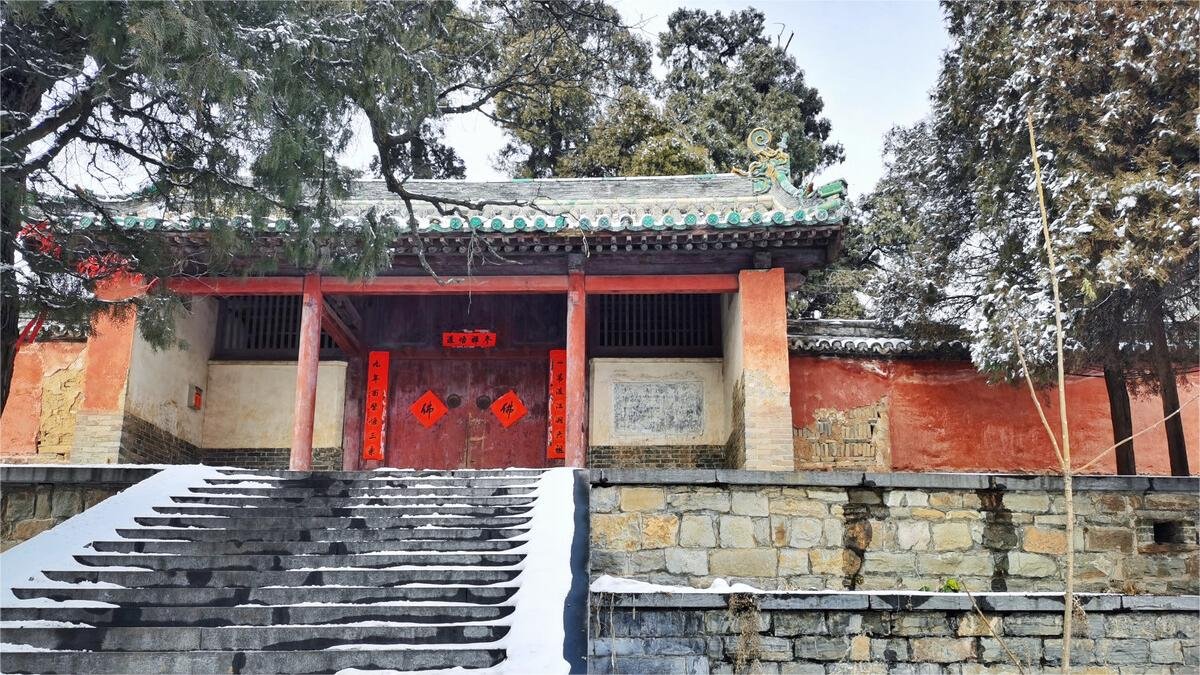Chuzu Temple (初祖庵), located in Shaolin Temple, northwest of Dengfeng City, Zhengzhou, Henan Province, was built in the seventh year of Xuanhe in the Northern Song Dynasty (1125 AD) to commemorate the founding patriarch, Bodhidharma. Covering an area of approximately 3400 square meters, Chuzu Temple stands as a testament to the profound influence of Bodhidharma, also known as Damo, the founder of Chan Buddhism in China.
Basic Information
| Estimated Length of Tour | 1 hour |
| Ticket Price | Included in the ticket for Shaolin Temple |
| Opening Hours | 8.00 – 17.00 |
Who is Damo
Bodhidharma, a legendary figure in Chinese Buddhism, arrived in Guangzhou during the reign of Emperor Wu of the Southern Liang Dynasty. He proclaimed himself as the 28th patriarch of the Chan lineage, establishing the Chinese Chan school, which is also referred to as the “Damo school” in his honor. Revered as the “first patriarch of the East” and “Patriarch Damo,” Bodhidharma’s teachings emphasized the practice of meditation, particularly the method of wall-facing meditation, which became synonymous with his legacy. Hence, Chuzu Temple is also known as the “Temple of Bodhidharma’s Wall-Facing.”
Architectures in Chuzu Temple
The architectural ensemble of Chuzu Temple is oriented north to south and consists of three main structures: the mountain gate, the main hall, and the Thousand Buddha Pavilion. The main hall, with a width of three bays and a depth of three bays, features a single-eave gable and hip roof with green glazed tiles and ornate eaves. Large brackets support the eaves, while the entrance is adorned with intricately carved stone pillars depicting scenes of rolling clouds, soaring birds, and other motifs. Inside the hall, four stone columns are adorned with carvings of celestial guardians and coiling dragons. The structure’s timber framing is a remarkable example of Song Dynasty wooden architecture, showcasing advanced craftsmanship and artistic expression.
The eastern, western, and rear walls of Chuzu Temple are adorned with colorful murals, depicting scenes from Buddhist mythology and Bodhidharma’s life. These murals not only serve as decorative elements but also convey spiritual teachings and inspire devotion among worshippers.
Annual Ceramony
An annual ancestral ceremony held on the second day of the lunar New Year has been a tradition at Shaolin Temple for over a thousand years. Following the morning assembly in the main hall of Shaolin Temple, the abbot leads the monks and devotees from the monastery to Chuzu Temple for the ancestral ceremony. The ritual, conducted amidst the solemn chanting of sutras, serves as a tribute to the lineage of patriarchs and masters, expressing gratitude and reverence for their wisdom and guidance throughout history.




